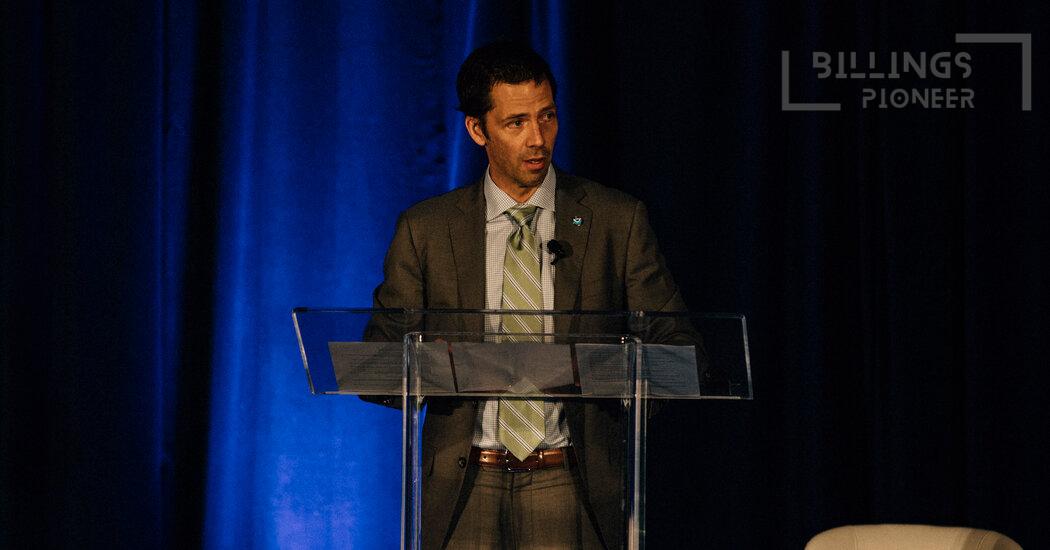Trump Nominates Neil Jacobs, Controversial Scientist, to Lead NOAA Again
In a surprise move that has turned heads across the nation, former President Donald Trump has once again nominated Neil Jacobs to lead the National Oceanic and Atmospheric Administration (NOAA). This announcement has stirred up memories of Jacobs’ previous tenure, which was often clouded by controversy and questions regarding scientific integrity.
Background of the Nomination
Neil Jacobs, who served as NOAA’s acting administrator from early 2019 through the end of Trump’s first term, was at the center of a major political storm during his last time in office. Several events marked this period, but the most infamous was the ‘Sharpiegate’ incident. In September 2019, Jacobs reportedly backed President Trump after he incorrectly stated that Hurricane Dorian would hit Alabama. This misstatement caused a ruckus as it contradicted the forecasts provided by NOAA meteorologists.
What Happened During ‘Sharpiegate’?
During the hurricane season of 2019, President Trump showcased a modified weather map that included Alabama as a potential impact zone of Hurricane Dorian. This led to an internal conflict where Jacobs faced accusations of trying to cover up the statement made by the President. Jacobs publicly contradicted NOAA’s scientists in a statement which resulted in an investigation into whether he violated NOAA’s ethics code. Ultimately, this raised concerns among scientists and brought to light the issue of political influence over scientific data.
Concerns About Future Leadership
Jacobs’ nomination is not only a return to a familiar face but also raises worrying questions about the future of NOAA and its commitment to scientific integrity. Advocates for science have expressed fears that his leadership could suppress climate science, which many believe is a critical area of focus given the pressing issues related to climate change. These concerns are highlighted by the controversial Project 2025, proposals that include breaking up NOAA and privatizing parts of its operation, causing even greater alarm among the scientific community.
Jacobs’ Credentials and Vision
Despite the controversies, Jacobs is backed by a strong scientific resume. He holds advanced degrees in mathematics, physics, and atmospheric science, and has been significantly involved in the development of innovative weather forecasting systems. Currently, he serves as an advisor to the Unified Forecast System at North Carolina State University, where he promotes open innovation in predicting weather patterns. Jacobs has expressed a desire to improve weather forecasting models, which highlights his commitment to science in this field.
The Path Forward: Senate Confirmation
Jacobs’ nomination is now headed towards the Senate for confirmation. This process will allow senators to review his past actions and qualifications to ensure he is fit to lead such a crucial agency. Having previously faced scrutiny in 2020, it remains to be seen if senators will move forward with his candidacy or if pressure from climate advocates will lead to a rejection. The confirmation process is a vital part of holding nominees accountable, especially in an agency that plays a crucial role in weather forecasting and climate research.
How This Affects Maryland and Beyond
The outcome of this nomination is particularly significant for residents of Maryland, a state that is often affected by hurricanes and severe weather patterns. The decisions made at NOAA can greatly influence disaster preparedness and response efforts in areas prone to storms. With Jacobs at the helm, many are watching closely to see if he will foster an environment that prioritizes scientific truth or follow a more politically driven agenda.
Final Thoughts
As we await updates on Jacobs’ nomination and the potential Senate confirmation process, the broader implications on NOAA’s direction and the integrity of climate science continue to be the priority for many concerned citizens and scientists alike. The importance of leadership choices at the National Oceanic and Atmospheric Administration cannot be overstated, as it directly impacts both the accuracy of weather forecasts and the future actions taken against climate change.







